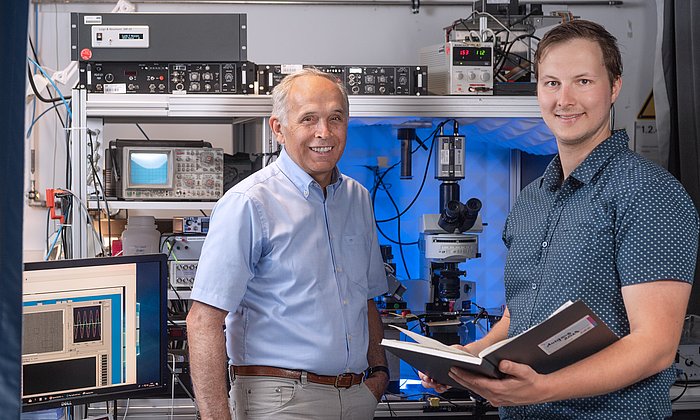Podcast "Exzellent erklärt" on the ORIGINS Cluster of Excellence
Using Artificial Intelligence to Uncover Cosmic Secrets

This is where Artificial Intelligence plays a crucial role in data analysis, as Prof. Lukas Heinrich and Dr. Philipp Eller from the Technical University of Munich (TUM) explain in the latest episode of the German podcast "Exzellent erklärt." Both are researchers at the ORIGINS Cluster of Excellence, which investigates the development of the universe from the Big Bang to the emergence of life.
Episode 49 “The universe in the laboratory: How artificial intelligence (AI) helps in the search for elementary particles” of the podcast series “Exzellent erklärt” (published on 15.9.2024, 26 min, in German):
The podcast series was co-designed and implemented by cluster participants from the four TUM Clusters of Excellence, among others.
Technical University of Munich
Corporate Communications Center
- Ulrich Meyer
- presse@tum.de
- Teamwebsite



